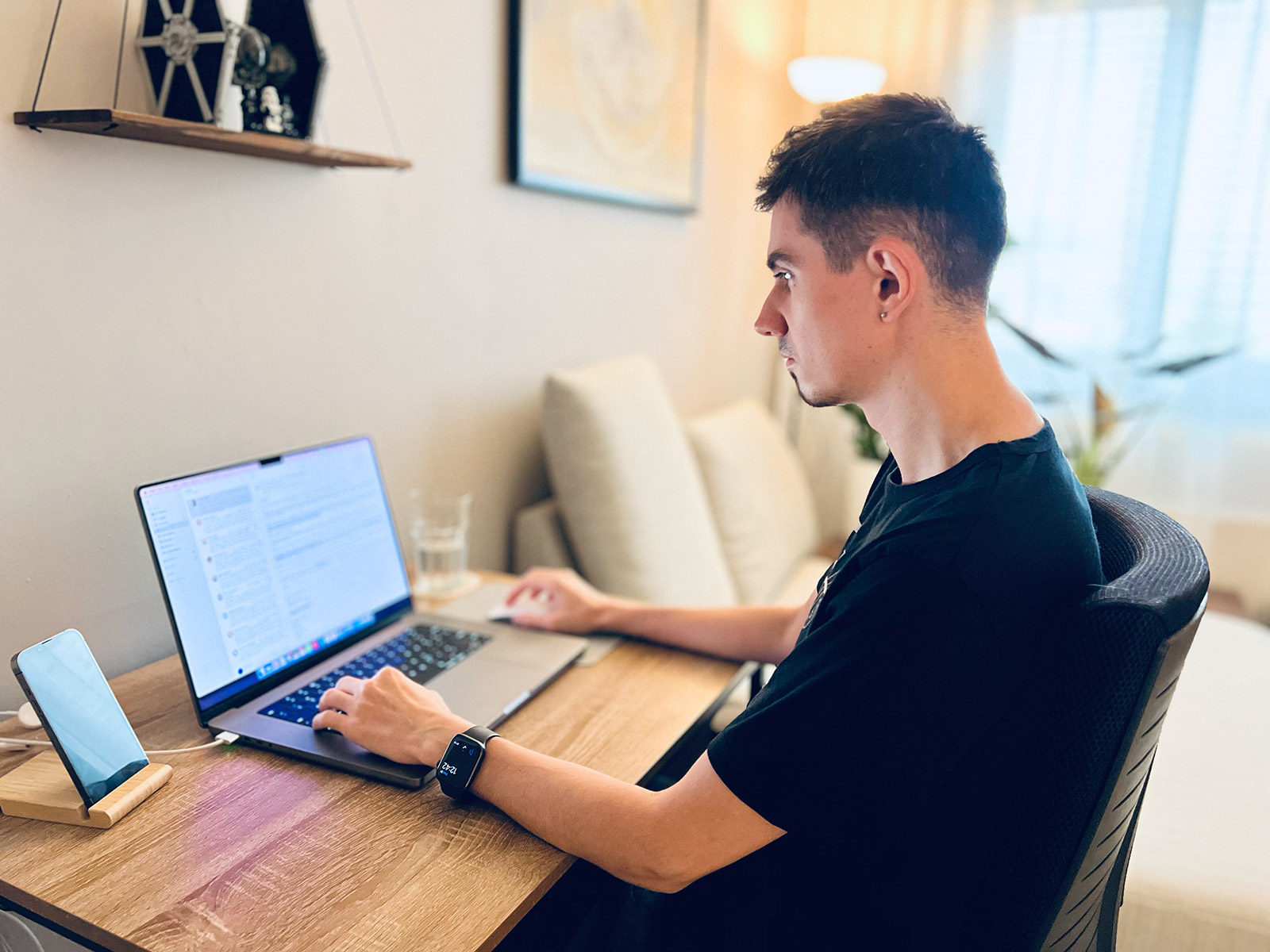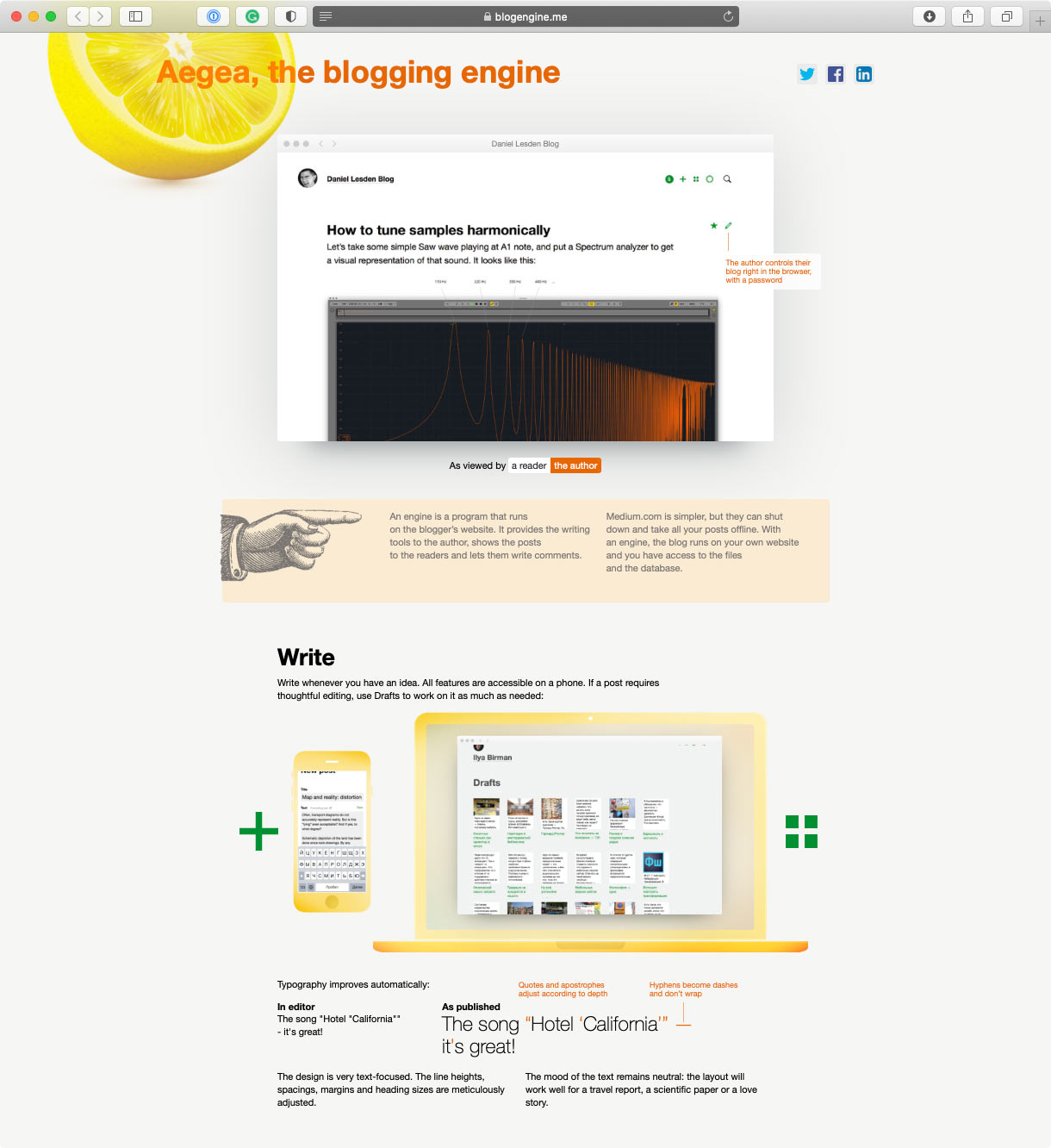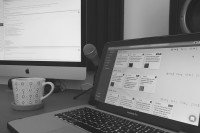Ten years of remote work: what I’ve learned about productivity and life-work balance
2023 marks my tenth anniversary of working remotely, a journey that began long before it became a widespread practice. Prior to joining Beatport, for over a decade, I balanced a corporate marketing job while pursuing a DJ career on the side, all while embracing the remote work lifestyle. In this post, I’d like to share a few things that I have learned from this experience.

Finding a balance is tricky but crucial
One of the prevailing myths that continue to persist in the realm of remote work is the misconception that working from home equates to working less. Quite contrarily, the distinction between the home space and the workspace can blur significantly, leading to an increased tendency to overwork. When one’s office is just a few steps away from their living room, the boundaries between professional and personal time can become nebulous.
Many, including myself at first, end up working more. Way more. It’s tempting to check work emails anytime – morning, dinner, even bedtime! When I started, my usual 8-hour workday turned into 10 or even 12-hour stretches, solely because of constant online availability that appeared to necessitate further work engagement.
This is when I realised that I must find a work-life balance, otherwise it’s just not sustainable. Here are a few things that helped me:
- Heightened awareness: Recognising the imbalance was the first step. Just acknowledging my work habits and the impact they had on my personal life triggered a shift in behaviour.
- Distinct devices: Having separate gadgets for work and personal use was a game-changer. It drew a definitive line between my professional duties and personal time.
- Browser profiles: Even without separate devices, setting up distinct browser profiles made a significant difference. I’m using Arc browser, and I love that it allows customizing the appearance of each profile.
- Varied physical spaces: Changing my location within my home environment had a surprising impact. For instance, when focused on job-related tasks, I remained stationed at my desk. But when tapping into a more ‘creative zone’ for personal projects, relocating to the sofa with my laptop made a distinct psychological shift.
- Notification management: Being bombarded with work notifications round the clock wasn’t healthy. Unless there was an urgent matter, tweaking my device settings to limit notifications after hours became crucial. Fortunately, modern apps and systems provide the tools to manage notifications effectively.
Expanding further on these strategies, creating separate spaces and zones within one’s home for different tasks can substantially influence the mindset. Consider designating a specific area solely for work-related activities to reinforce the work environment mentally. Conversely, having a different space for personal pursuits can foster a more relaxed atmosphere conducive to creativity and leisure. For example, for this reason, I intentionally avoid working with my laptop in bed, as I aim to preserve this space solely for rest, both physically and mentally.
Ultimately, these adjustments aren’t just about physically segregating spaces or devices; they are about cultivating a mental distinction between work responsibilities and personal life, nurturing a healthier and more sustainable work-life balance.
Remote work is not an office work-from-home
The transition to remote work during the pandemic in 2020 was a significant shift for many companies, revealing that it wasn’t just about relocating work from office desks to home laptops. The traditional corporate structure heavily reliant on in-person meetings and constant supervision faced challenges in this new remote landscape.
For example, the tendency of some corporate environments to schedule meetings back-to-back persisted in the virtual world through platforms like Zoom. However, this simulation of the office environment didn’t quite translate effectively. The crux lies in understanding that remote work and bringing the office home aren’t synonymous; they operate on fundamentally different principles.
Remote work thrives on asynchronous communication, which means less reliance on instant, real-time in-person conversations and more emphasis on methods like emails, project management tools, and shared documents. This is why I love emails and I prefer to sync everything to the cloud. Unlike the office setting, there might be fewer instances of constant managerial oversight, fostering a culture of personal accountability and autonomy among employees.
I think remote work also requires a shift from a ‘time spent working’ mindset to a ‘results-oriented’ approach. In an office environment, the focus might be on the number of hours spent at the desk. However, in remote setups, the emphasis shifts to the quality of work delivered, enabling people to take ownership of their work, manage their time more effectively and focus on productivity over mere presence, something that I certainly noticed in me over the years.
Home distractions are real
Working remotely sometimes feels like a blessing as it allows me to spend more time with family, but it’s not without the distractions of a comfortable home environment. As a working-from-home parent, managing kids’ interruptions is certainly a familiar challenge! Proximity to the kitchen and things like YouTube in the next browser tab can hamper focus too.
I tried a few productivity techniques, from the Pomodoro technique to time-blocking (which didn’t work for me), and eventually, a simple to-do list turned one to be the most effective for me. I use Things 3 as my main task manager app, which helps streamline tasks, prioritise activities, and maintain focus by providing a clear roadmap for the day. Even when distractions occur, which sometimes inevitably happen, the task manager and the system I’ve built around it allow me to stay on top of things.
All in all, I think remote work is truly a lifestyle and a mindset. It’s important to acknowledge that it may not suit everyone, and that’s perfectly fine. Much like I can hardly imagine returning to a daily office routine after a decade of autonomy, I understand that for some individuals, the notion of spending days at home might seem daunting. Our preferences and comfort zones vary, so I encourage everyone to discover what truly works best for them.
If you have any questions about staying productive (and keeping your sanity, haha) or anything related to remote work, let me know in the comments and I’ll do my best to answer.


